An honest Forethought review (2025): Features, pricing & alternatives

Kenneth Pangan

Katelin Teen
Last edited December 3, 2025
Expert Verified
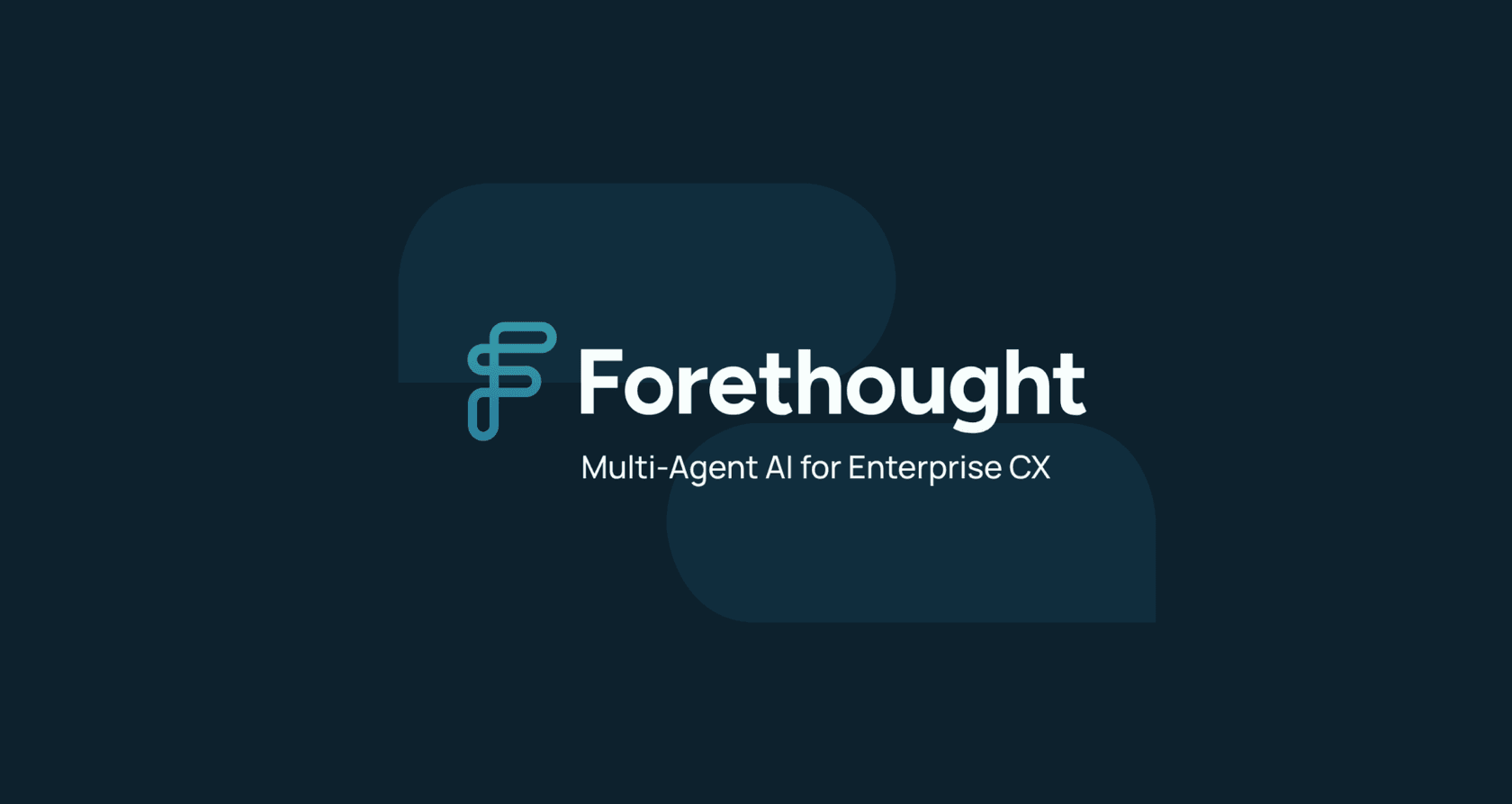
Picking an AI platform for your support team can feel overwhelming. Every company promises to completely change how you work, but the reality is often hidden behind complicated features, surprise costs, and a sales process that drags on forever. One of the bigger names you’ll come across is Forethought, a platform that bills itself as a leader in "agentic AI" for customer service.
But is it actually as good as they say? This honest Forethought review is here to get past the marketing fluff. We'll look at its main features, figure out how easy (or hard) it is to get up and running, and see what real users are saying. By the end, you should have a solid idea of its pros and cons, and whether it’s the right call for your team, or if a more modern, straightforward alternative makes more sense.
What is Forethought?
Forethought is an AI platform designed to automate and streamline customer support. The whole idea is that its generative AI learns from your own company's data, things like past support tickets, help center articles, and internal notes, to solve customer issues on its own.
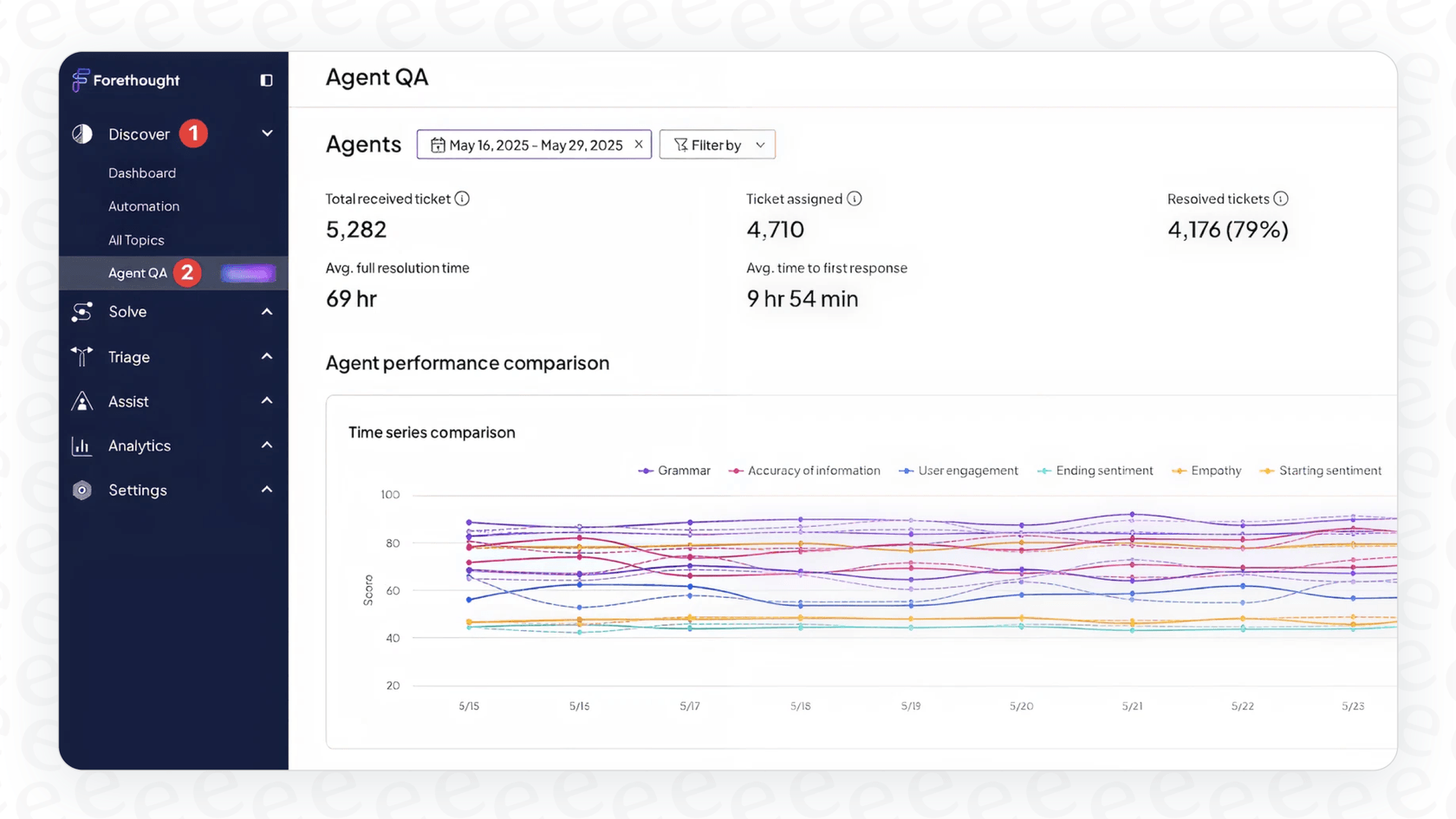
You’ll hear them mention their "multi-agent system" and "fully agentic AI" quite a bit. In simple terms, this means their bots are supposed to do more than just find answers; they're designed to reason through problems and take action. The platform is split into a few core products that are meant to work together:
-
Solve: This is their main AI agent that talks directly to customers.
-
Triage: An AI that automatically sorts and routes incoming support tickets.
-
Assist: An AI sidekick for your human agents, suggesting answers and finding info for them.
Forethought claims it can cut first response times by an average of 55% and resolve up to 98% of issues. It’s definitely positioned as a solution for larger companies that want to go all-in on a powerful, data-heavy AI system.
A deep dive into Forethought's features
Forethought’s platform is built around its "multi-agent system," which is just a fancy way of saying different AI tools handle different parts of the support process. Let's break down what each of these tools actually does.
AI-powered ticket resolution (Solve)
Solve is the main event, the AI that actually chats with your customers over chat, email, and even voice. It’s built to understand a customer's problem by digging through thousands of your old support tickets and help articles, with the goal of solving the issue without a human ever getting involved. This is where the big promises of ticket deflection and high self-serve rates come from.
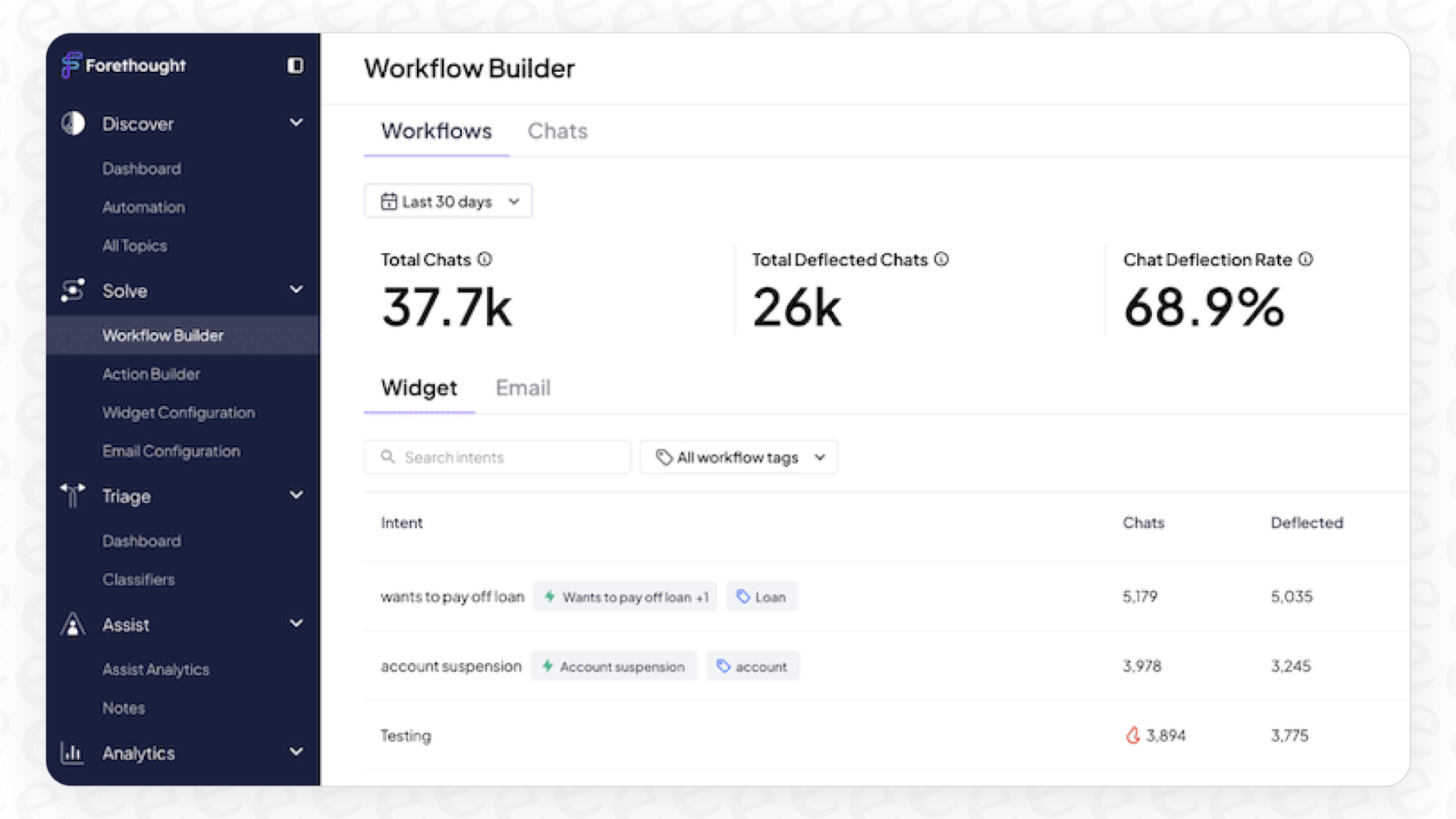
But when you start looking at user feedback on sites like Trustpilot, you see a common problem. Customers frequently mention getting trapped in loops where the bot just asks the same questions over and over. And when the AI gets stuck, it doesn't always know when to pass the conversation to a human, leaving people stranded in a cycle of useless automated replies. That can turn a small issue into a really frustrating experience.
AI agent assistance (Assist)
Assist is Forethought’s AI copilot that works inside the helpdesk alongside your support team. While an agent is handling a ticket, Assist is supposed to pop up with helpful suggestions, relevant canned responses, and links to knowledge base articles to help them solve the problem faster. On paper, it’s a fantastic way to cut down on manual work and help new agents learn the ropes.
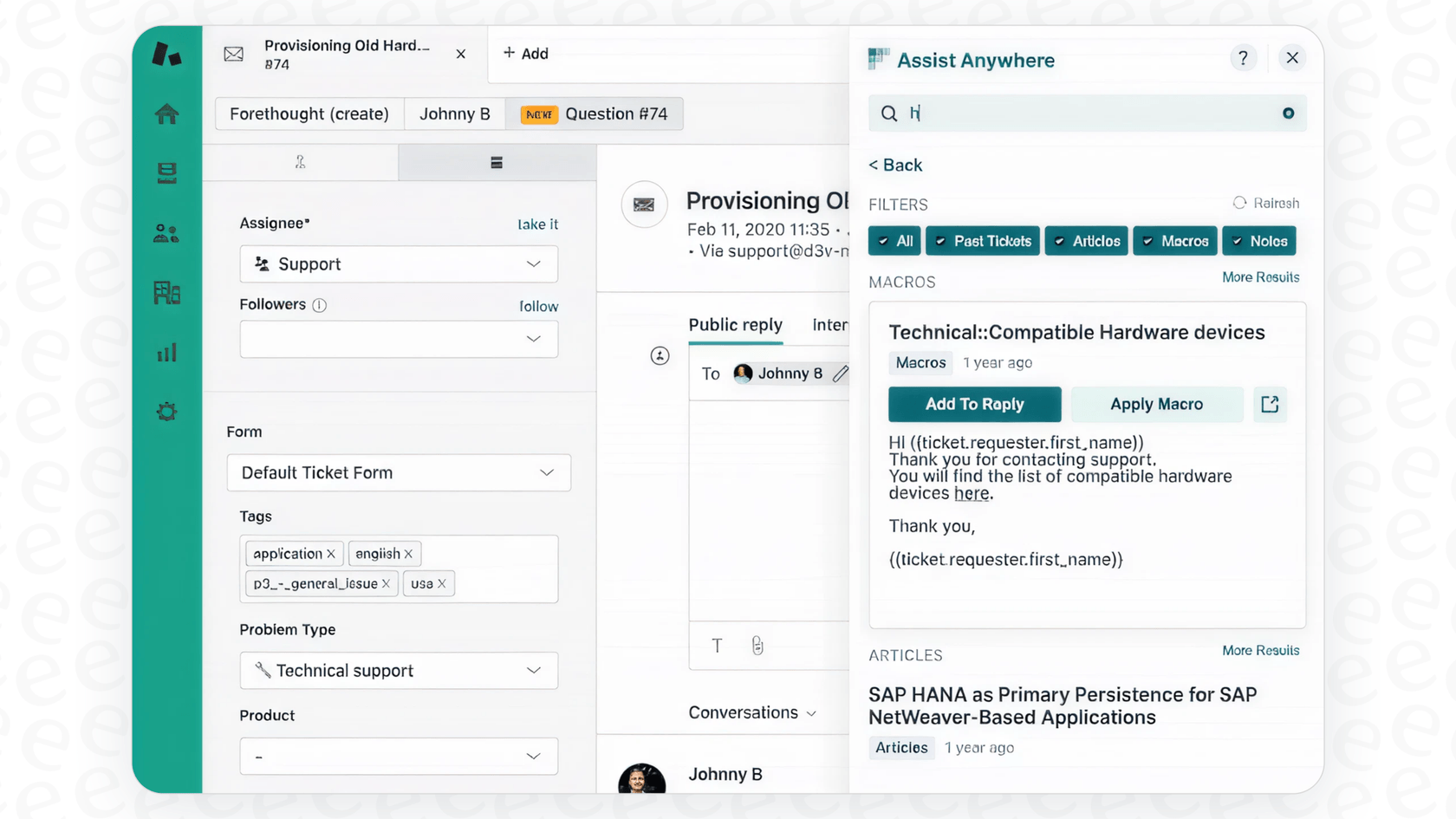
While many agents find it helpful, some reviews point out that the suggestions aren't always accurate. Sometimes, agents have to dig through irrelevant information to find what they actually need, which ends up slowing them down. The AI is only as smart as the data it’s trained on, and if the context is a little off, the suggestions can miss the mark.
Automated ticket triage (Triage)
Triage is the AI working behind the scenes to automatically sort, tag, and route new tickets to the right person or department. This is supposed to help prioritize urgent problems, filter out spam, and make sure tricky issues get to a specialist right away. For a busy helpdesk, that kind of organization is a huge help.
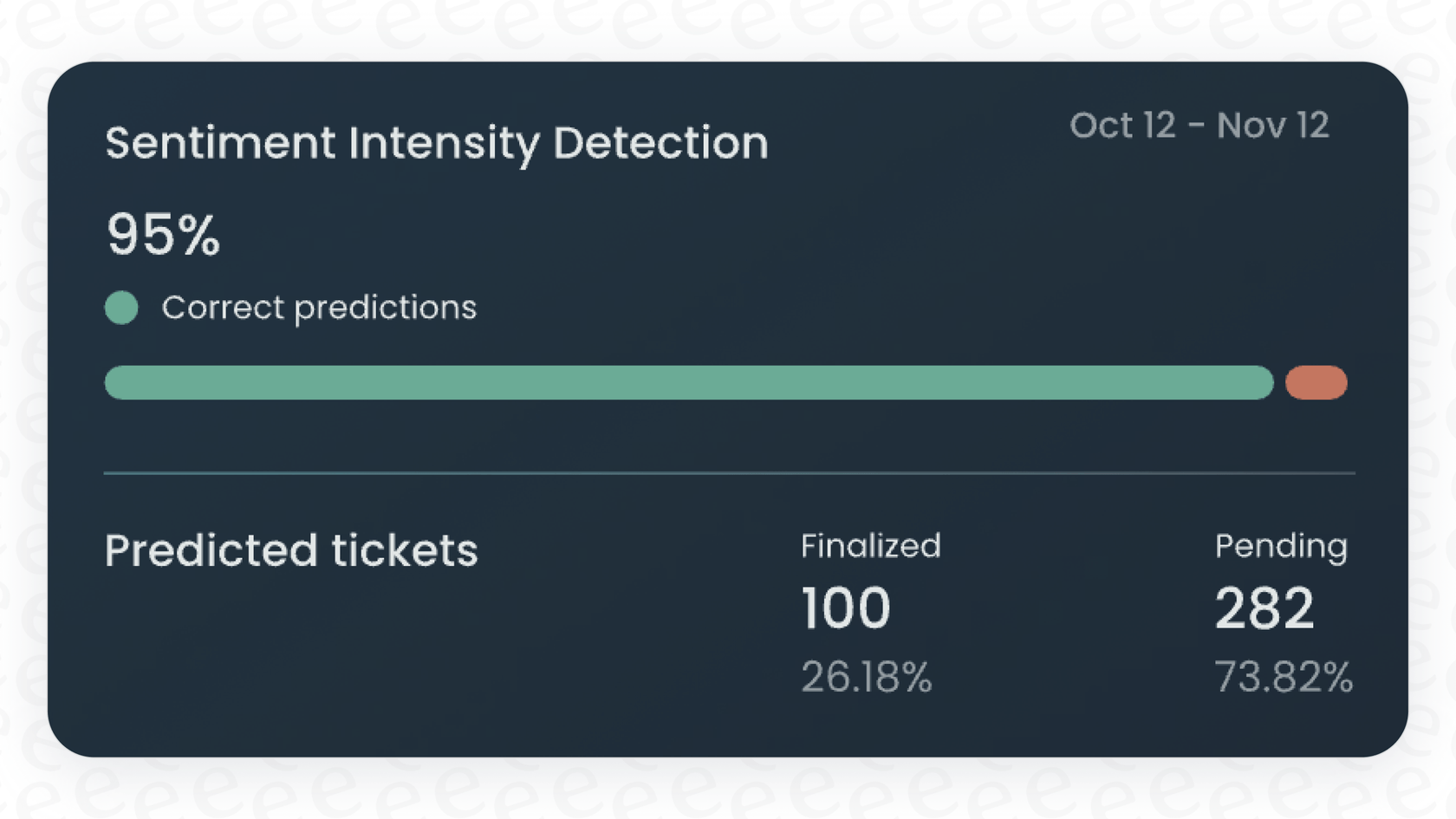
The benefit is obvious: less manual sorting for your team. But getting it set up isn't always a walk in the park. User feedback from G2 suggests that creating the workflows for Triage can be pretty involved. It takes a lot of initial setup and ongoing tweaking to keep tickets going to the right place, which can be a big ask for teams that don't have someone dedicated to managing it.
How easy is it to set up and use Forethought?
The setup process is a big deal, and this is where Forethought really shows its enterprise colors. You can't just sign up and start playing around. The process usually involves booking a demo, then having a series of calls with their sales and implementation teams to figure out your needs.
A review from SMB Guide points out a huge hurdle for many companies: Forethought’s AI works best when it has a ton of historical data to learn from, something like 20,000 past tickets. This pretty much makes it a non-starter for smaller businesses or newer teams who just don't have that kind of history.
This hands-on, data-intensive setup feels a bit dated when so many modern tools are all about speed and simplicity. For instance, platforms like eesel AI are designed so you can get started entirely on your own. You can connect your helpdesk, whether it's Zendesk or Freshdesk, and have a working AI agent up in just a few minutes.

Another thing Forethought is missing is a good simulation mode where you can safely test the AI before letting it talk to customers. This means you’re more or less going in blind until you flip the switch. Being able to test an AI on thousands of past tickets in a safe space is a huge advantage for reducing the risk of a new automation tool, and it’s something newer platforms prioritize.
Forethought pricing and what to expect
If you’re trying to find a price on Forethought’s website, good luck. They don’t publish their pricing publicly. You have to get in touch with their sales team to get a custom quote, which will depend on things like your monthly ticket volume and how many agents you have.
Custom pricing isn't unusual for enterprise software, but not being upfront about it creates a few headaches for anyone trying to evaluate the tool:
-
You can't compare costs easily. Without a price list, you have no way to quickly see how Forethought stacks up against other options.
-
It’s tough to budget. You have to go through the whole sales song and dance just to get a ballpark idea of the cost.
-
The costs can be a mystery. It’s not always clear how your bill might change as your ticket volume grows or your needs evolve.
This is a big difference from the transparent pricing you see from alternatives. For example, eesel AI has clear, public pricing tiers based on usage, with no hidden fees for each resolution. This lets you know exactly what you’ll be paying and even lets you start on a flexible month-to-month plan without getting roped into a long contract.

The downsides: A balanced look at user feedback
No tool is perfect. After digging through reviews on G2, Capterra, and Trustpilot, a few common complaints about Forethought keep popping up.
It can be complex and needy. While the platform is powerful, a lot of users say it’s a pain to set up and maintain. Building the right workflows isn't something you do once and forget about. As one G2 reviewer mentioned, you have to constantly monitor the data and tweak the AI's "intents," which means ongoing work.
The AI can feel rigid. Customers talking to Forethought's chatbots on Trustpilot often complain about getting stuck in conversational loops and not being able to reach a person. This stiffness can really hurt the customer experience, turning a helpful tool into a wall of frustration.
The reporting is limited. Some users on G2 have said the analytics dashboards are "a bit messy" and don't give them the deep insights they need to figure out why some automated workflows aren't working. It’s one thing to see what the AI is doing, but it's another to understand how to make it better.
Updates can be slow. A few reviews noted that getting fixes for "long-standing issues" can take a while, which suggests that product updates and bug fixes might not be as fast as you'd hope.
A simpler, more transparent alternative: eesel AI
While Forethought has a lot to offer big companies, its complexity, steep data requirements, and mystery pricing just aren't a good fit for everyone. If you're looking for something more nimble and user-friendly, eesel AI is a modern alternative built around simplicity, control, and transparency.
Go live in minutes, not months
You can forget about mandatory demos and long onboarding calls. eesel AI is designed to be completely self-serve, letting you get started in minutes. With one-click integrations for helpdesks like Zendesk and Intercom, you can plug in your tools and have an AI agent running almost immediately.
Best of all, eesel AI comes with a powerful simulation mode. This lets you safely test your AI on thousands of your past tickets to see exactly how it would have replied and get accurate predictions on how many tickets it will resolve before you turn it on for your customers. This takes all the guesswork and risk out of the process.

Total control and transparent pricing
Where some users find Forethought's AI to be inflexible, eesel AI puts you in complete control. Its workflow engine is fully customizable, so you can decide exactly which types of tickets the AI should handle and when it needs to escalate to a human. You can also adjust its tone, set up custom actions, and limit its knowledge to specific sources.
And the pricing is simple and predictable. You can find all the plans right there on the eesel AI website, with clear tiers based on usage and no surprise fees. You can start on a monthly plan and cancel anytime, giving you the kind of flexibility that Forethought's long-term contracts don't.
Forethought vs. eesel AI
| Feature | Forethought | eesel AI |
|---|---|---|
| Onboarding | Requires demo & sales call | Self-serve, live in minutes |
| Pricing Model | Custom, not public | Transparent, tiered plans |
| Pre-launch Testing | Not available | Powerful simulation mode |
| Customization | Complex workflow configuration | Simple prompt editor & action builder |
| Knowledge Sources | Helpdesk & help center focused | Unifies all sources (Docs, Confluence, etc.) |
Is Forethought the right choice?
After this Forethought review, it’s pretty clear that it's a serious AI platform with a lot of horsepower. It’s probably a solid choice for large, established companies that have tons of historical ticket data, a dedicated team to manage a complex tool, and a budget that can handle a custom-priced solution.
But for the growing number of teams that value speed, flexibility, and knowing what they’re paying for, Forethought’s model has some major drawbacks. The long setup, lack of public pricing, and rigid nature of its AI can be real deal-breakers for businesses that need to adapt quickly and keep a close eye on their tools and budget.
If you’re looking for an AI solution you can set up yourself in minutes, test with confidence, and scale without surprise costs, you'll probably be happier with a more modern alternative. Exploring a platform built for the self-serve world will likely save you time, headaches, and money.
Ready for an AI solution you can set up yourself in minutes? Try eesel AI for free and see how it works with your own data.
Frequently asked questions
This Forethought review indicates that the platform is primarily designed for large, established companies. It's ideal for those with extensive historical ticket data, a dedicated team to manage a complex AI tool, and a budget for custom-priced solutions.
The Forethought review highlights that pricing is not published publicly. You need to contact their sales team for a custom quote, which typically depends on factors like your monthly ticket volume and the number of agents.
This Forethought review emphasizes that a significant amount of historical data, specifically around 20,000 past tickets, is needed for optimal performance. The setup process is also involved, requiring demos and consultations rather than a self-serve approach.
User feedback in this Forethought review suggests that when the AI gets stuck in loops, it doesn't always effectively know when to pass the conversation to a human. This can lead to frustration for customers trying to resolve their issues.
Yes, the Forethought review points out that the platform can be complex and needy. Users have noted that ongoing monitoring of data and tweaking of the AI's "intents" are necessary for it to function optimally.
This Forethought review suggests eesel AI as a modern alternative. It's designed for self-serve setup in minutes, offers transparent tiered pricing, and includes a simulation mode for confident pre-launch testing.
Share this post

Article by
Kenneth Pangan
Writer and marketer for over ten years, Kenneth Pangan splits his time between history, politics, and art with plenty of interruptions from his dogs demanding attention.





